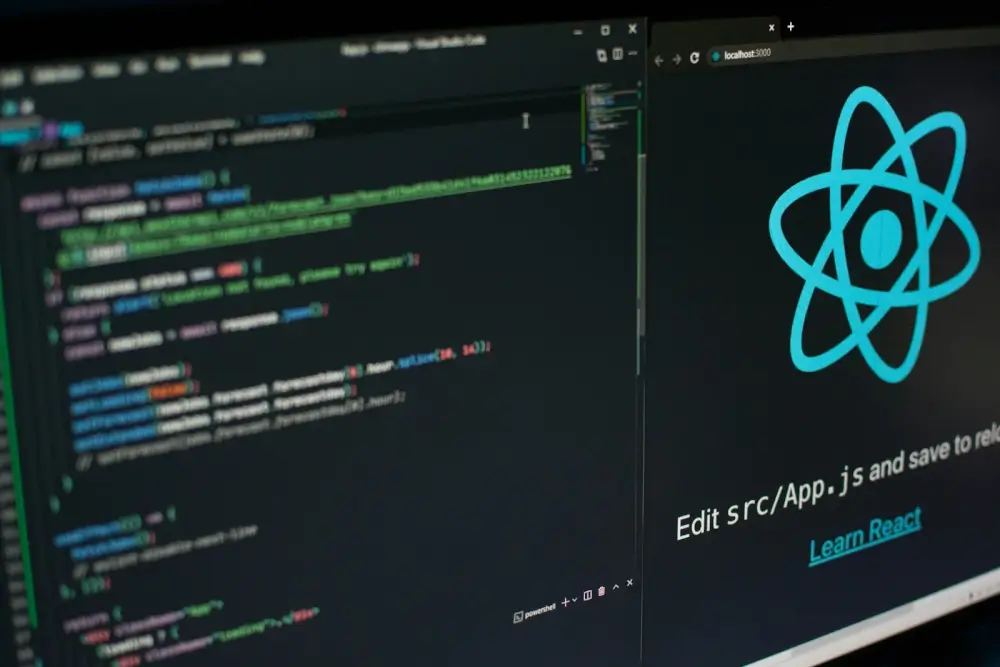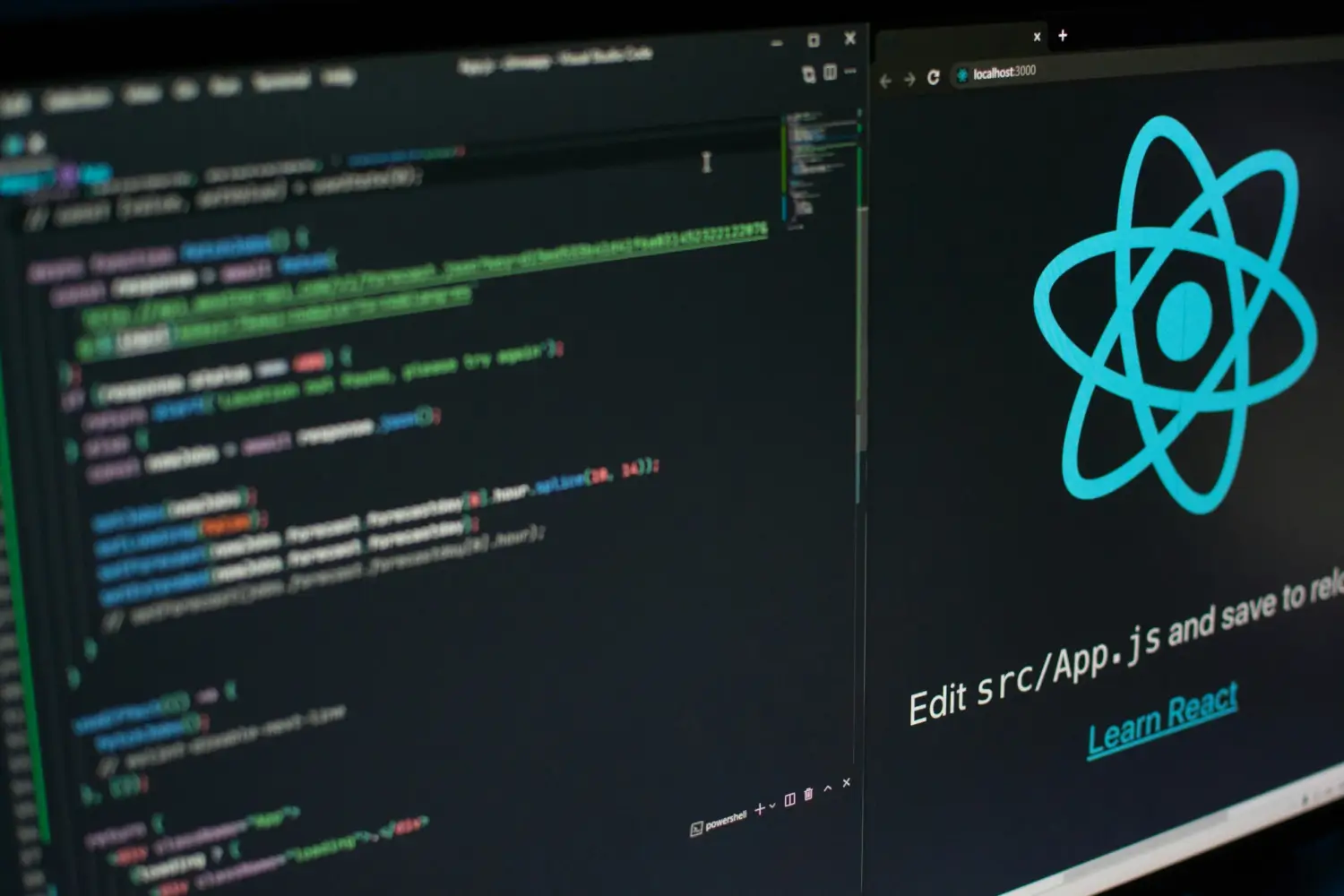As developers and businesses search for the best tools and frameworks to build powerful and efficient mobile and web applications. Flutter and React are two frameworks that have gained significant popularity in the development community. Both frameworks have their pros and cons, making it essential to evaluate their performance, features, and ecosystem to determine which is better in 2024.
Explore this article as I thoroughly compare Flutter and React, looking at their important features, performance, community support, and future outlook. Drawing from my extensive practical experience and research as a developer and consultant, I provide detailed insights.
Introduction to Flutter and React Native
Flutter:

Flutter, developed by Google, is an SDK based on the Dart programming language. Originally designed for web apps, Flutter evolved to support mobile and desktop solutions. Its architecture consists of three components: Embedder, Engine, and Framework.
- Embedder: Responsible for launching the app on any OS, providing access to services like event loops and input.
- Engine: The central part handling graphics, input/output, rendering subsystems, plugins, app accessibility, and Dart’s compiler and runtime.
- Framework: Comprising libraries for animation, gestures, layouts, and more, with a widget-based approach for a customizable UI.
Advantages of Flutter
High Performance: Flutter’s C++ engine and Skia graphics engine contribute to higher performance, exceeding that of React Native.
Rich Set of Widgets: Flutter offers a comprehensive set of in-built rendering components, providing extensive tools for testing, navigation, and device API access.
Hot Reload: A feature allowing dynamic manipulation of renderable objects, providing instant feedback on changes without requiring updates.
Growing Community: Companies like Google, Square, BMW, eBay, and Alibaba Group have adopted Flutter, contributing to its growing community.
Challenges of Flutter
Large Application Size: Flutter apps may have a larger file size, which can be a concern, especially for smaller applications.
Dart Language Adoption: Dart is a relatively new language, and finding Flutter developers with expertise in Dart may be challenging.
React:

React Native, initially an internal project at Facebook, emerged as a powerful JavaScript framework for building native-feel hybrid apps. Its architecture allows developers to create cross-platform apps using a bridge to native APIs, facilitating a responsive UI.
Advantages of React Native
Easy Learning Curve: React Native’s use of JavaScript, a widely adopted language, contributes to an easier learning curve for developers.
Robust Community Support: Facebook’s backing ensures continuous support, and React Native has a robust community, offering many useful tools and features.
Live Reloading: Allows developers to see changes in real-time, making the development process more efficient.
Modular Architecture: The modular architecture of React Native facilitates a responsive UI and simplifies the development process.
Challenges of React Native
Inefficient Debugging: Debugging in React Native may require third-party solutions, making the process less seamless compared to Flutter.
Lower Quality Compared to Native: While React Native delivers native-like performance, it may have some limitations compared to truly native solutions.
Large File Size: React Native apps may have a larger file size, posing challenges, especially for smaller applications.
Comparing Key Features:
To assess the potential of Flutter and React, it is essential to understand their core features and capabilities. Here is a comparison of some key features:
| Feature | Flutter | React |
| Programming Language | Dart | JavaScript |
| UI Development | Widget-based | Component- based |
| Performance | High-performance due to compiled code | Relies on JavaScript engine, performance varies |
| Cross-Platform Support | Excellent support, allows building apps for iOS and Android | Requires additional tools for native app development |
| Ecosystem | Growing ecosystem, but still developing | Mature ecosystem with a vast collection of libraries |
| Learning Curve | Steeper learning curve for beginners | Relatively easy to learn and flexible for web developers |
Performance Comparison
In general, Flutter apps are likely to act better than React Native apps. This is because Flutter uses allure’s own translation power plant, which is composed in C++. This instrument is very developed and can produce native-condition drawings and animations. Flutter, with its compiled code approach, offers exceptional performance.
React Native, in another way, uses the native rendition tool on each plank. This means that React Native apps are eventually restricted for one acting of the latent native UI materials. It relies on JavaScript engines and can sometimes face performance issues due to its virtual DOM.
However, it’s main to note that the act distinctness between React Native and Flutter apps is comparably limited. For most apps, the dissimilarity will not be conspicuous to consumers.
However, if you’re developing a performance-critical app, such as a game or a real-time streaming app, then Flutter is the better choice
The key benefits of Flutter and React Native
- Flutter surpasses in complex UI and UI standardisation. This is advantageous if complex animations are a key necessity for your app, and UI regularity is main to your brand countenance.
- Flutter’s UI standardisation can help us reduce the number of bugs and resources spent on fixing platform and device-dependent bugs.
- React Native surpasses in the amount of possessions, web support and OTA renews. Again, the event that another person has already solved your problem means that you can save dev time and resources.
- React-based applications can be optimized using server-side rendering or static site generation, making them more discoverable by search engines.
- OTA amends to admit you to push renovations to your consumers outside enduring the app store review process, that may be a massive availability.

Is Flutter Faster Than React Native?
Following the changes in React Native’s architecture (JSI), React Native has been getting closer to Flutter in terms of performance. But a Flutter app can still be slightly faster than a React Native’s (of course, that doesn’t necessarily have to be a problem and it depends on the type of your product and the job it does).
Is Flutter Better Than React Native
Flutter has been gradually winning the React Native vs Flutter popularity race for a while now, and that’s because it’s considered easier to work with. Also, issues reported on Flutter’s GitHub have a lot more solutions than those of React Native. However, there’s a scarcity of Flutter developers on the market, which is a considerable drawback. So while there are many advantages of Flutter over React Native, it’s difficult to answer which technology is better for developing close-to-native mobile apps.
Community and Industry Adoption
The size and support of a framework’s community play a significant role in its overall success. React, backed by Facebook, enjoys widespread industry support and has a massive community of developers contributing to its growth. The framework has been around for a longer time, making it more familiar and well-established. Flutter, though relatively new in comparison, has gained immense popularity due to its cross-platform capabilities and attractive UI. The Flutter community is rapidly expanding, and new libraries and packages are being developed constantly.
Future Prospects
To understand the future prospects of Flutter and React, it is crucial to consider their market trends and adoption rates. Flutter’s cross-platform capabilities make it a strong contender for mobile app development, particularly for startups and small businesses. Its potential for building beautiful UIs and delivering a native-like experience makes it appealing to developers. React, with its robust ecosystem and strong backing from Facebook, continues to dominate web development. With advancements like React Native, it has also found its way into mobile app development.

Conclusion
In conclusion, both Flutter and React have their strengths and weaknesses. Flutter offers excellent cross-platform support, exceptional performance, and a growing ecosystem, making it a promising choice for mobile app development. React, with its mature ecosystem and widespread adoption, remains the go-to choice for web development. When choosing between Flutter and React in 2024, consider your project requirements, team expertise, and long-term goals.
As an experienced developer and consultant, my recommendation would be to evaluate the specific needs of your project before making a decision. Ultimately, the right framework for you will depend on factors such as project complexity, team familiarity, target platforms, and scalability requirements.
Would you like to get engaged with professional Flutter Developer?
We are a software development team with extensive development experience in the Hybrid and Crossplatform Applications development space. Let’s discuss your needs and requirements to find your best fit.





